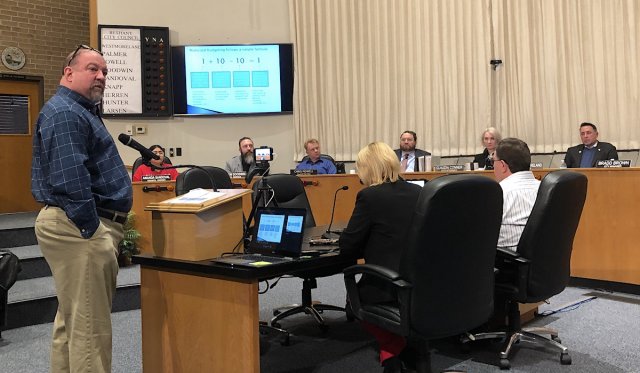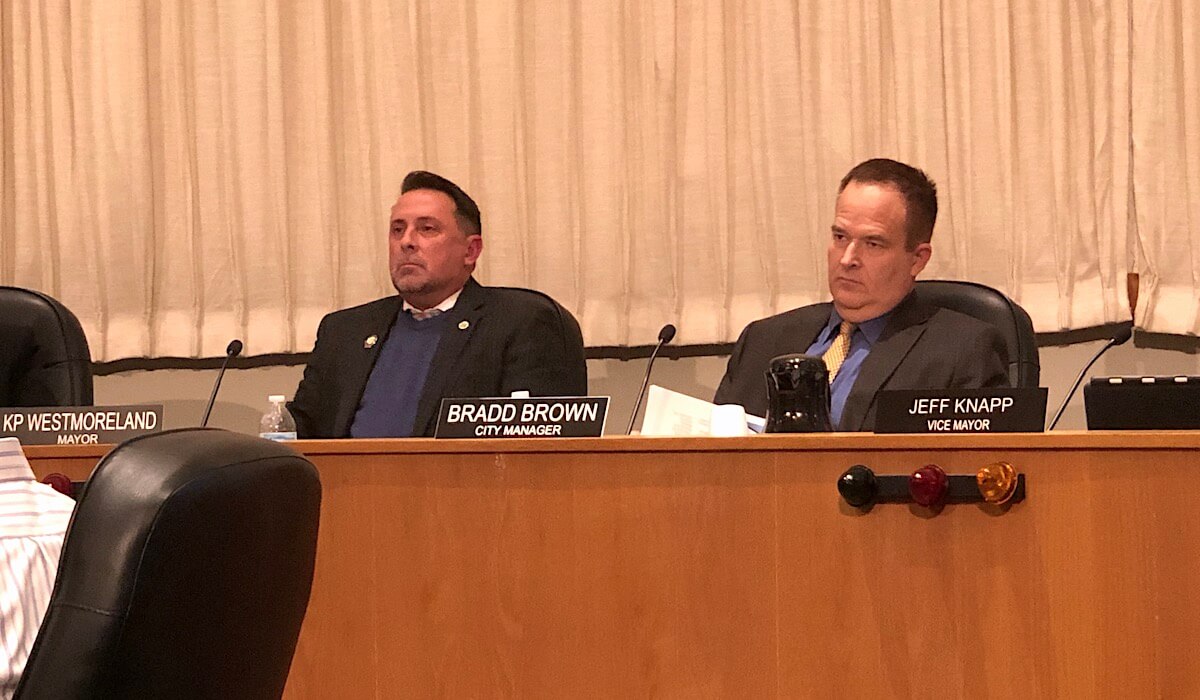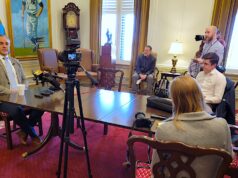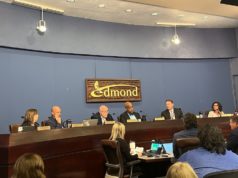

During a tense special hearing Tuesday evening, a certified public accountant told the Bethany City Council that a $3 million to $4 million transfer “error” years ago left the 20,000-resident municipality with far lower cash reserves than city leaders previously thought. Considering city expenses and revenues, that means Bethany could end its 2019-2020 fiscal year with almost no savings for next year.
“There was basically an error,” said Frank Crawford, a CPA hired to audit Bethany’s books. “So the general fund didn’t start with $5.8 million. It only started with $300,000. Now let’s do the math.”
The math Crawford displayed for councilmembers left many in stunned silence.
“You can’t let this happen. Now there may be some reasons for this. But again, you just can’t let this materialize,” Crawford said regarding the city’s general fund. “You can’t collect $9.2 million and spend $12.1 million because you will end with a negative fund balance. So you’ve got to figure out a solution for that.”
Bethany actually maintains money in two primary “pockets,” as Crawford analogized: the general fund and the Bethany Public Works Authority. While the BPWA’s financial situation is rosier than the general fund’s, combining the two showed Crawford the “actual” numbers for FY 2019-2020: $4.6 million in carryover funds, $15.1 million in projected revenue and $19.1 million in projected spending. The result, Crawford said, would be a carryover for next fiscal year of less than $100,000.
“It’s closer to $0 than anything else,” Crawford said.
Bethany Mayor K.P. Westmoreland tried to remain confident, telling about four dozen audience members that the only option the city has is “to fix it.”
“I would like to say that we didn’t get to this point overnight, and we’re not going to fix this overnight,” Westmoreland said. “This isn’t a time of trying to place blame, but this is a time of trying to find a solution and come up with a combination of things we need to do to secure the health, safety and wellbeing of our citizens.”
Resident: ‘Please start learning to do the math’
Bethany resident Arvel Williams sat in the front row of Tuesday’s meeting and pondered who deserves blame. An engineer who moved to Bethany in 2012, Williams used to praise city leaders for their past prudence.
“When I first moved to the City of Bethany, I was very proud of the City of Bethany because they had enough cash on hand in the public works account where they could buy a fire truck,” Williams said. “They couldn’t do that now.”
Williams would know, having poured through the city’s financial documents online and raising his concerns with Bethany officials.
“I went back and took a look at the budgets, and there was a discrepancy,” he said. “So I started asking more questions and wasn’t getting any answers. They gave one presentation for the city on the operating budgets (…) and I said, ‘None of these numbers match anything in your public budget.”
Like a handful of other residents, Williams spoke briefly during Tuesday’s public hearing, telling councilmembers that attempts to address the Bethany budget problem by increasing utility prices would not yield enough revenue to make a difference.
“Please start learning to do the math,” Williams said. “It’s that simple. It’s just like [Crawford] said: Add, subtract.”
Bethany budget problem ‘going to take hard decisions to fix’

What municipal leaders — including new City Manager Bradd Brown — will do to stabilize the Bethany budget problem will be a conversation for the remaining half of their 2019-2020 fiscal year, not only in terms of building the city’s next budget, but also regarding expenses between now and June 30.
“It’s going to take hard decisions to fix it,” said new Bethany Councilman Chris Powell. “We’re going to have to do some things that we are not happy about doing. But if we are going to do the best for our city, we have got to make those hard choices.”
Bethany Police Chief Phil Cole said his reaction was that it’s too early to know exactly how the city should proceed.
“I think this was a good first step. This information came to light the middle of last week,” Cole said. “The new city manager is acting quickly to bring it attention — first to the council, of course — and then to the public.”
Cole said he has been with the force for 30 years and has seen challenges before.
“We’ve had a similar issue. This isn’t unprecedented. I think that the road ahead is going to be difficult, but I really don’t know what that road is yet,” Cole said. “I have a good feeling that cutting personnel is hopefully a last decision. But as they pointed out in the presentation, the majority of our expenses are in personnel costs. So there may be very hard decisions ahead.”
Westmoreland, the Bethany mayor, said he and other councilmembers are committed to being “completely honest.” At a regular council meeting later Tuesday evening, members voted to request an audit be conducted by State Auditor and Inspector Cindy Byrd’s office.
“We are going address this, and we will move forward and we are going to fix it,” Westmoreland said earlier in the night.
Crawford noted that the numbers he presented featured a reconciliation of dollars dubbed “contingency” in the Bethany budget.
“Much like police, fire, streets, there was an entire department called contingency, which I actually took out because there is no such department,” Crawford said.
Williams said Bethany’s “contingency” department was one of the peculiarities that first caught his attention.
“All the prior administrations have managed to save money,” Williams said. “It’s going to take a while to get out of this mess.”




















